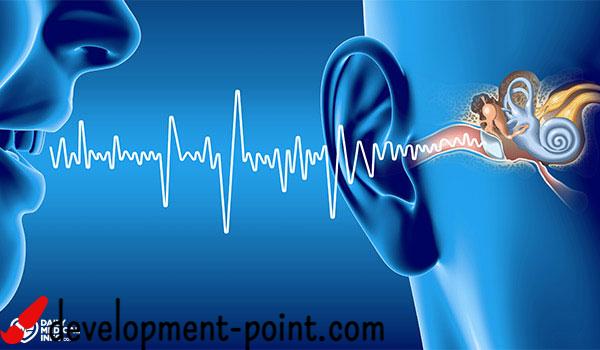Symptoms of insipid diabetes: the most important causes and methods of treatment
Diabetes insipidus may lead to severe dehydration. So it is necessary to know the most important Symptoms of diabetes insipidus And knowing the most important causes, methods of diagnosis and treatment in order to prevent any complications of the condition.
diabetes insipidus
Diabetes insipidus is a rare hormonal disorder that causes an imbalance of fluids in the body. Which may make you feel very thirsty, as well as prompt the body to excrete large amounts of urine, which in turn increases the risk of dehydration. Although its symptoms are similar to diabetes, it differs from it.
The difference between diabetes mellitus and diabetes insipidus
Diabetes occurs as a result of resistance or deficiency of the hormone insulin, which leads to high levels of sugar in the blood. While diabetes insipidus leads to an imbalance of fluids in the body, and thus frequent urination from normal rates with an increased feeling of thirst. The symptoms of diabetes insipidus differ from the symptoms of diabetes, but there are some common symptoms between them.
Causes of diabetes insipidus
The following are considered among the causes of diabetes insipidus, according to its types:
1. Central diabetes insipidus
Central diabetes insipidus is the most common type that may result from an injury to the pituitary gland causing the inability to secrete the hormone vasopressin, which works to regulate body fluids, or a head injury, tumor, or surgery, which affects the production of the antibody. for diuresis.
2. Renal diabetes insipidus
This type occurs when there is a defect in the renal tubules, making the kidneys unable to respond to antidiuretic hormone (ADH) properly. Renal diabetes insipidus may also result from a genetic disorder or as a result of taking certain medications.
3. Gestational diabetes insipidus
It is a disorder that rarely occurs during pregnancy, as a result of the destruction of antidiuretic hormone by an enzyme produced by the placenta in the mother.
Symptoms of diabetes insipidus
The most common symptoms of all diabetes insipidus include:
- excessive urination
- extreme thirst
- Tendency to drink cold drinks more
- Sleep disturbance due to frequent urination at night
- Drought
The amount of urine extracted in severe cases may reach about 19 liters per day, if you drink a lot of fluids, while a healthy person usually urinates between 1 and 2 liters per day.
Complications of symptoms of diabetes insipidus
If severe dehydration goes untreated, blood sodium may increase. leading to emergence Neurological symptoms such as:
- confusion
- skin dryness
- dizziness, nausea;
- Weight loss
- Epileptic seizures
- trance
- Kidney damage
- Permanent brain damage that may lead to death
Symptoms of diabetes insipidus in children
Symptoms of diabetes insipidus may vary from one child to another, but are among the most common symptoms:
- difficulty sleeping
- Crying without knowing why
- fever
- vomiting
- diarrhea
- Weight loss
- growth retardation
Diabetes insipidus analysis
There are some tests and analyzes that doctors may resort to using in order to diagnose diabetes insipidus, Among the tests used:
1. Water deprivation test
The doctor may ask the patient to refrain from drinking fluids for several hours under medical supervision in order to measure the changes that will occur in body weight, and to determine the concentration of urine and blood.
2. Urinalysis
The concentration of salt and other wastes is tested by analyzing the urine sample. If the person suffers from diabetes insipidus, the result of the analysis will contain a high concentration of water in exchange for a low concentration of other wastes.
3. MRI
The purpose of using this type of test is to check whether there is any damage to the brain tissue that causes these symptoms of diabetes insipidus.
4. Genetic testing
Genetic testing, or what is known as a genetic examination, is resorted to based on the family’s medical history. If symptoms have appeared on family members, the doctor may recommend this examination.
Treatment of diabetes insipidus
Treatment is not usually necessary in mild cases of diabetes insipidus. In mild cases, the patient can rely on increased drinking of water in order to replace the fluids lost as a result of frequent urination.
However, in all cases, it is recommended to consult a doctor, as the treatment depends on the doctor’s diagnosis and the severity of the condition. Among the treatment methods according to each type are:
Treatment of central diabetes insipidus
If you suffer from mild symptoms, it may only require increasing your daily fluid intake. But if central diabetes insipidus is caused by a pituitary gland defect, the cause must be treated first.
One of the most common types of treatment is the use of hormone therapy, where desmopressin is a synthetic form of the hormone vasopressin and is taken in the form of pills, injections, or nasal spray.
Treatment of renal diabetes insipidus
In the case of nephrogenic diabetes insipidus, your doctor may recommend a low-salt diet to help reduce the amount of urine your kidneys produce. You should also drink more fluids to prevent dehydration.
But if the symptoms of diabetes insipidus are caused by taking some types of medications, the doctor may help you to stop taking the medications that cause the condition or replace them with other types.
Treatment of gestational diabetes insipidus
Most cases of gestational diabetes insipidus are treated with the use of the synthetic hormone desmopressin, which is used to control urine and stop involuntary urination.
And after learning about the symptoms of diabetes insipidus, methods of diagnosis and treatment. You should always take care of your health, and consult a doctor in case of suspicion of any symptoms of illness that may affect your health.
Natural remedies for diabetics insipidus
Following the following tips may help patients treat symptoms of diabetes insipidus:
Diet change
Changing the diet to include plenty of water-rich vegetables and fruits may help diabetics insipidus replace lost fluids. Like eating zucchini, cucumber, spinach, kiwi, and coconut water.
On the other hand, you should avoid eating processed foods that contain preservatives and high levels of sodium. It is also preferable to avoid drinking soft drinks and drinks that contain caffeine.
Drink more fluids
People who suffer from symptoms of insipid diabetes should drink more fluids in order to compensate for the lost, and reduce the feeling of excessive thirst while avoiding the complications of insipid diabetes in the event that they do not receive the necessary treatment.
Check your medications
Some prescription medications can affect the electrolytes in the body, making them imbalanced. Therefore, you must follow the doctor’s instructions, and avoid taking any medications before consulting a doctor, so that this does not lead to serious health complications.

